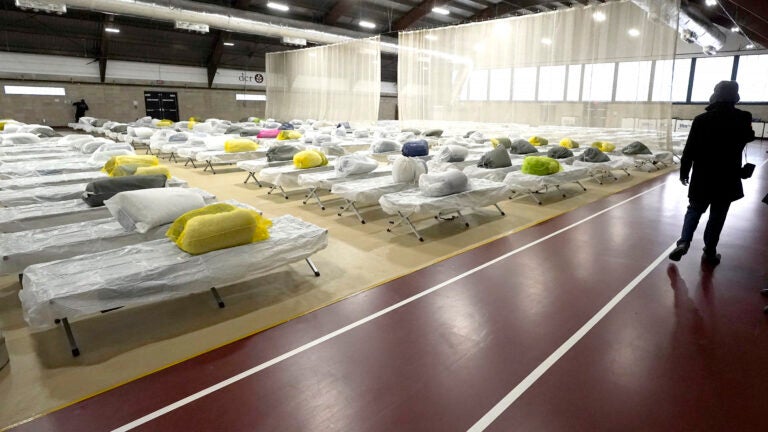Boston.com Today
Sign up to receive the latest headlines in your inbox each morning.

For more than a year, Massachusetts officials have been struggling to handle the combined effects of a housing affordability crisis and a surge of migrants in need of shelter. As the state’s emergency shelter system has filled up, Gov. Maura Healey’s administration has set up additional overflow sites, implemented shelter stay limits, pleaded with federal officials for more resources, and sought to communicate a message of “we’re full” to migrants thinking of coming to Massachusetts.
Officials have also tried another tactic: covering the travel expenses of those who have somewhere else to go. Through the state’s reticketing program, the Healey administration will book and pay for flights and bus tickets for newly-arrived families that have the option of staying with friends or family in other states. Now, officials are releasing new details on how widespread the program has been and what it has cost the state so far.
Since March, 65 total families have opted into the reticketing program, according to the Executive Office of Housing and Livable Communities. In early July, The Boston Globe reported that only 18 families had been reticketed at that time. The administration was distributing notices to families arriving at “welcome centers” around the state, advertising the reticketing program and telling people that they would no longer be allowed to stay inside Logan Airport.
To pay for the travel expenses of the 65 families that have used the reticketing program, the state has so far paid $85,768, according to officials. They say that this is significantly less than it would have cost to house these families in shelters for nine months.
Reticketing is entirely optional, and it is available to all families eligible for the state’s emergency shelter system, not just newly-arrived migrants. The families that have been reticketed so far have all been transported to domestic U.S. locations.
The administration has also been working to increase the number of families exiting the shelter system. Last fall, Healey imposed a 7,500 family cap on the system, prompting overflow sites and a waiting list to be implemented. As of last week, there were 7,327 families in the system, according to state data. About half of them are staying in traditional shelters, while the other half are staying in hotels and motels contracted by the state.
A total of 425 families exited the shelter system in September, compared to 162 exits in September of 2023, officials said. Since the start of this year, 2,971 families have exited the system.
The system is explicitly meant to shelter pregnant women and families with children. Nearly one in nine families that sought shelter through the system over the past two years included a pregnant woman. However, as the Globe reported this week, state officials have done little to address the health care needs of pregnant women.
Elsewhere in the state, some migrant families returned to Logan last month. They reportedly sought shelter there because of new rules that included a five-day limit on how long families can stay in overflow sites. Those that choose to stay in the overflow sites are required to wait six months or more for placement in the state’s emergency family shelter system proper. Some of the migrants staying at Logan told the Globe that they had purposefully refused to stay at overflow sites because they did not want their prospects of securing a longer-term stay at a shelter to be hindered.
Sign up to receive the latest headlines in your inbox each morning.